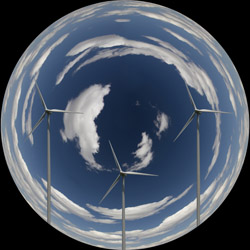Team work advances environmental technologies
The ‘Comparison and assessment of funding schemes for the development of new activities and investments in environmental technologies’ (Fundetec) project was designed to evaluate and make recommendations for improved access to financing for small and medium-sized enterprises (SMEs) involved in environmental technology innovation. The researchers evaluated 178 funding instruments and 33 environmental technology developers in 20 countries throughout Europe, North America and Asia. The Fundetec project compared funding sources, legislation and technology leadership and identified in detail similarities, differences, strengths and weaknesses. Obstacles to investment included higher start-up costs, inaccurate perceptions of cost and risk, lack of timely and correct information, and difficulties in coordination and communication among the various entities involved (government agencies, banks, developers, etc). The researchers identified discrepancies in measuring the performance of a given project. Most technology developers used revenue generation and growth together with the number of commercial installations of the new technology as measures of performance. In contrast, most funding bodies did not have clear and measurable criteria for assessing performance. This lack of clarity was reflected in the opinion of approximately 40 % of technology business leaders that most financial professionals lacked the technical knowledge to adequately evaluate the new technologies. Among the successful eco-investment models assessed were medium-sized businesses with more advanced financial models and global networks and partnerships. In addition, the North American model included public sector investment offering comprehensive financing, management training and verification and validation technology. Project efforts led to several recommendations based on the detailed assessment of investment in environmental technologies in 20 countries. Fundetec investigators proposed an integrated European approach with large-scale programmes in member countries, creation of an EU-Asia financing partnership for the development of clean technologies and a particular focus on regional strategy development related to building, transport, energy, agriculture and water. Finally, differentiation and coordination of member nations’ legal frameworks, public administration cultures and skills were identified as paramount to the success of an eco-investment programme. Implementation of the recommendations should advance Europe’s ambitious environmental goals while improving the economy.







